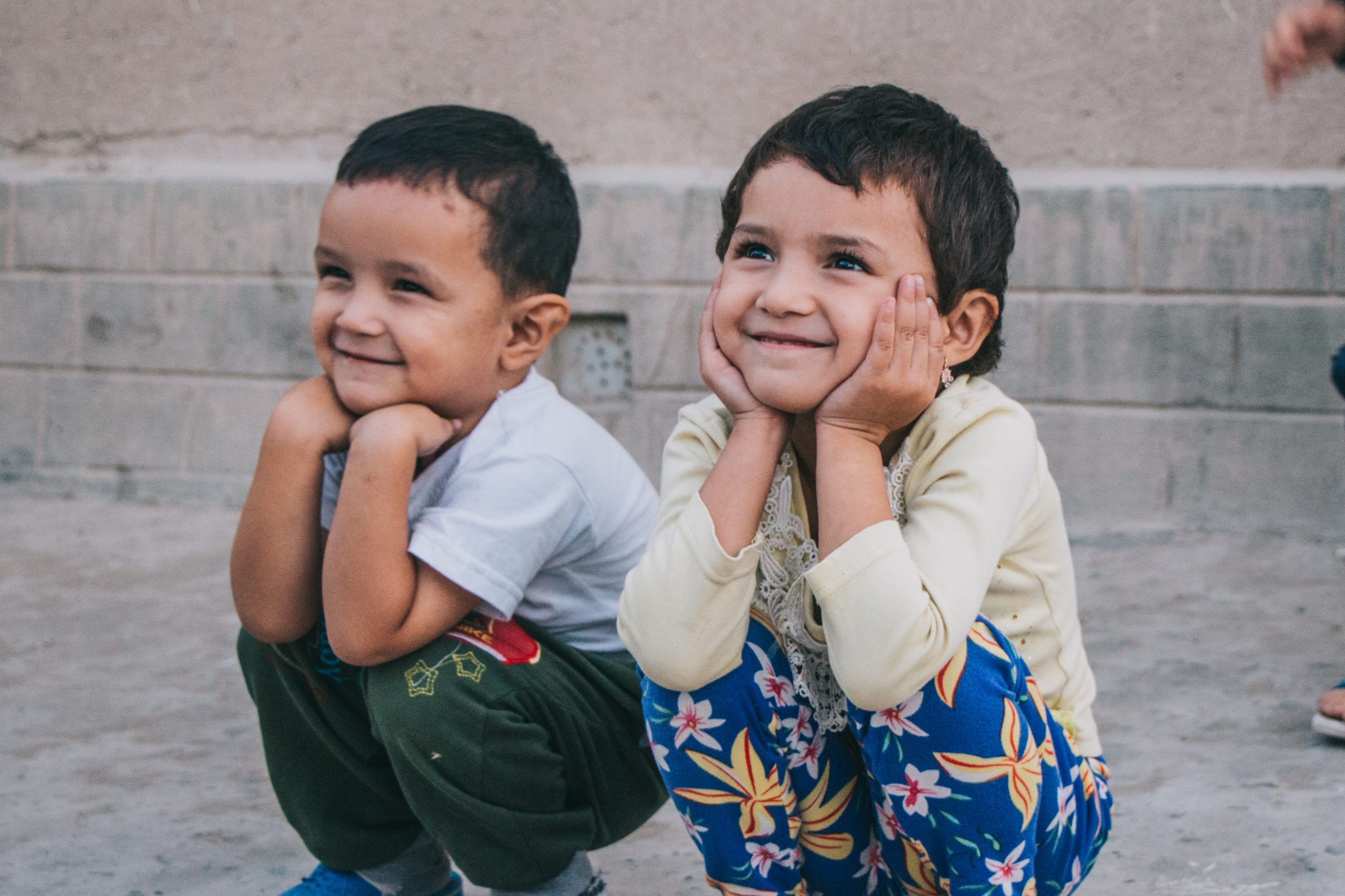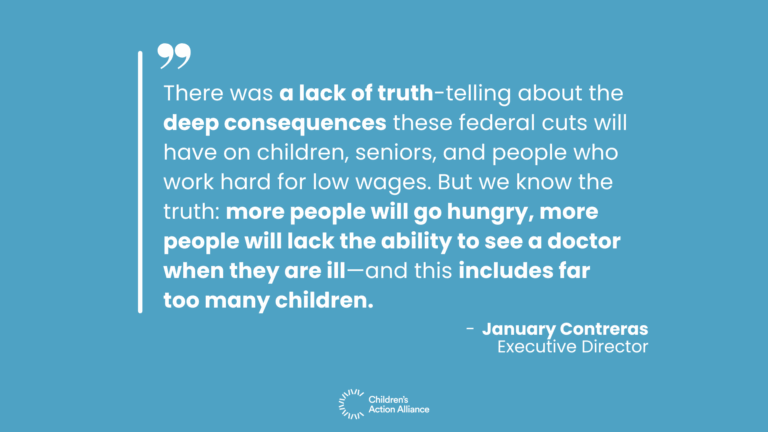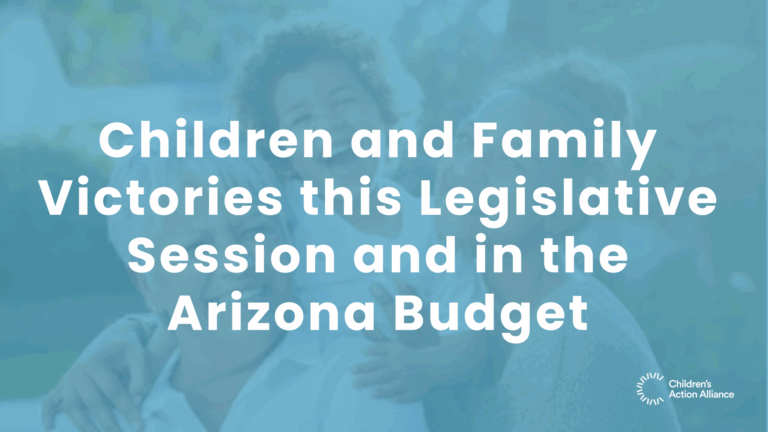
Passage of SB 1050 is a First Step in Rethinking Neglect
Passage of SB 1050 is a First Step in Rethinking Neglect: To prevent child maltreatment, Arizona must rethink both how it defines and responds to neglect.
By replacing one word, Senate Bill 1050 (Townsend), made a small but significant shift in the way the state defines child neglect. A finding of neglect now requires that the inability or unwillingness of a parent to provide supervision, food, clothing, shelter, or medical care must cause a substantial risk of harm to a child’s health or welfare, rather than merely an unreasonable risk of harm. While the change is subtle and may have limited immediate impact, it is an important recognition that children should not be separated from their parents just because they are poor. Or, at least, a recognition that the time has come for Arizona to rethink the use of foster care as a response to poverty-related child neglect.
Each year, Arizona’s child abuse and neglect hotline receives over 75,000 referrals for child maltreatment. Ninety-two percent are for neglect.1 Among children in foster care, neglect is cited as one of the reasons for removal 87% of the time.2 Much of what the child welfare system deems “neglect” stems from poverty. Research shows that families that experience poverty-related stressors such as income insecurity, housing instability, and food insecurity are more likely to come into contact with the child welfare system.3 For families of color, systemic racism heightens those challenges bringing them to the attention of child welfare at disproportionately high rates.4
A growing body of research also shows that when family economic security is addressed through fiscal supports, neglect and child welfare involvement decreases. Recent studies have found:
- A $1 increase in minimum wage is associated with a 10.9% decline in neglect reports involving young children.
- More generous state food stamp benefits lead to both fewer reports of child maltreatment and less use of foster care. For every 5% increase in enrollment of low income, the number of children in foster care was reduced by 7.6% to 14.3%.
- Federal Earned Income Tax Credit and Child Tax Credit programs are associated with immediate reductions in child maltreatment reporting. For each additional $1,000 in per-child EITC and CTC tax refunds, state-level rates of reported child maltreatment declined in the week of and four weeks following refund payment by 5%.
- A 10% increase in State Earned Income Tax Credit (provided in 29 states on top of the federal credit) leads to a 9% drop in neglect reports.
In its 2015 publication, The ‘Neglect of Neglect’, ASU’s Morrison Institute of Public Policy called on Arizona to define neglect more clearly in order to address it more effectively, offering:
“Policy makers and researchers must ask: Is a child is not eating enough because the parent is negligent, or because the family doesn’t have enough money to buy food? The effort to protect children cannot include punishing families for being poor.”
While there can be no doubt that neglect can cause significant and lasting harm to children, especially very young children, the policy decision to respond to poverty-related neglect through family separation by the foster care system must be called into question. Arizona needs to rethink neglect and how we respond to it—and most, importantly, how we can prevent it by investing in the financial wellbeing of families. The passage of SB 1050 is a good first step.



